biometrics
Latest
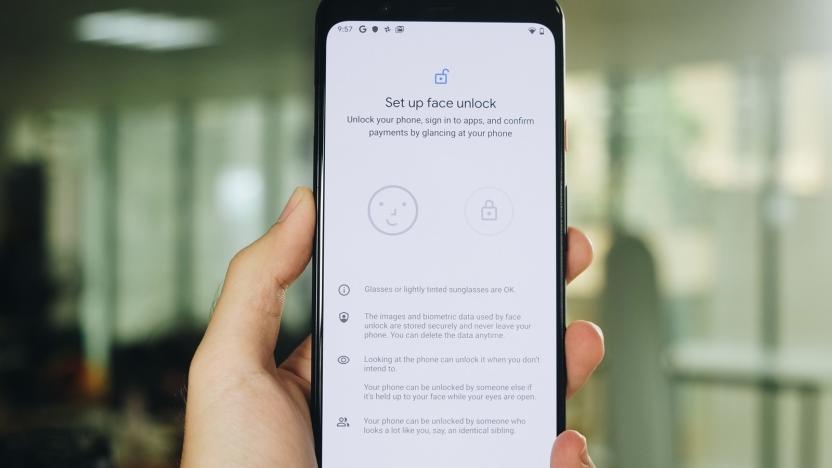
Yet another leak details the Pixel 4’s accessible take on Face ID
The Pixel 4 XL leaks continue this week with a new look at the phone's face unlock functionality. While Google confirmed the Pixel 4 would include facial authentication when it detailed the phone's Soli chip in July, this is the first time we've seen the feature in action. Thanks to Vietnamese tech blogger Genk, we get to see how setup works, as well as the adorable animation that accompanies the entire process.

Massive biometric security flaw exposed more than one million fingerprints
A biometrics system used by banks, UK police and defence companies has suffered a major data breach, revealing the fingerprints of more than one million people as well as unencrypted passwords, facial recognition information and other personal data.

United Airlines offers easier biometric clearance for frequent flyers
United Airlines is joining the likes of Delta and British Airways in using biometric security to speed up your airport visits. The airline has forged a deal with Clear that will bring speedy facial recognition and fingerprint scanning to its frequent flyers, helping them skip the usual document checks. Clear will be available in United's hubs at Newark Liberty International and Houston George Bush Intercontinental this summer, and there are "efforts" underway to make Clear lanes available at Chicago O'Hare in the moths ahead. Many passengers will get discounts on Clear as well, although the amount depends on just how devoted you are.
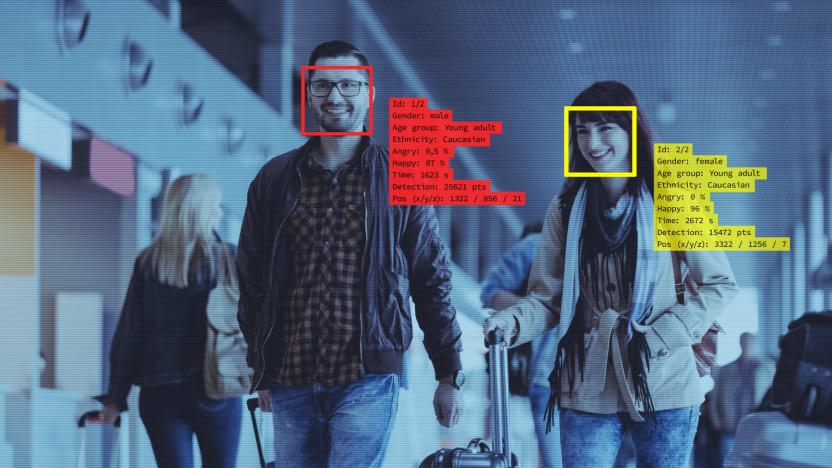
UK police's facial recognition system has an 81 percent error rate
Facial recognition technology is mistakenly targeting four out of five innocent people as wanted suspects, according to findings from the University of Essex. The report -- which was commissioned by Scotland Yard -- found that the technology used by the UK's Metropolitan Police is 81 percent inaccurate and concludes that it is "highly possible" the system would be found unlawful if challenged in court.

The Pentagon has a laser that identifies people by their heartbeat
Biometric identification has become part of everyday life. We've got facial recognition in airports, cars that can be unlocked just by looking at them, technology that detects a person's unique way of walking, and of course the ubiquitous fingerprint, used for everything from smart phones to event ticketing. Next on the agenda? Your heartbeat.
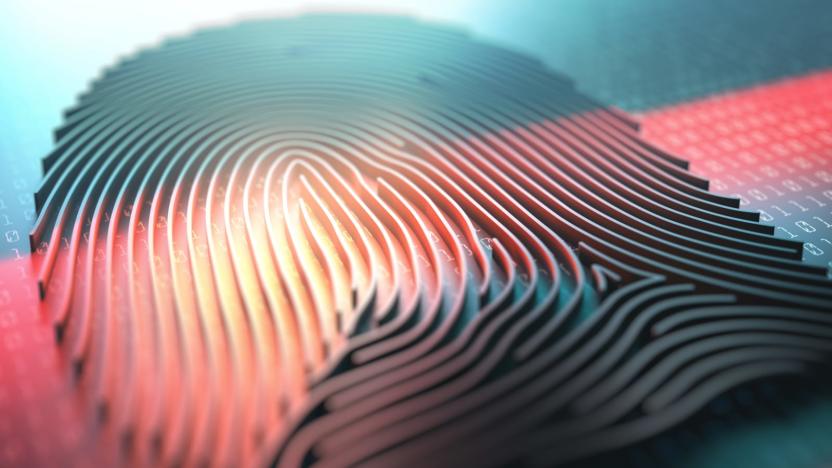
The web just got an official password-free login standard
Web Authentication (aka WebAuthn) has been a de facto standard for no-password web sign-ins for a while given that many tech giants are already using it, but now it's official. The World Wide Web Consortium and the FIDO Alliance have finalized the Web Authentication format, making it the go-to option for logging into accounts with potentially greater security and convenience than typing in your credentials. If a site supports it, you can get in using biometrics (such as fingerprints or facial recognition), USB security keys, or nearby mobile devices like phones and smartwatches.

Apple worked on biometric unlock for cars
Unlocking your car with a key is so passé. If you've got the right car, you can already use your smartphone as a car key, and Hyundai is slated to release a vehicle that can be unlocked with a fingerprint later this year. Now, it seems that Apple is working on a system that also let drivers gain access to their vehicles via biometrics.
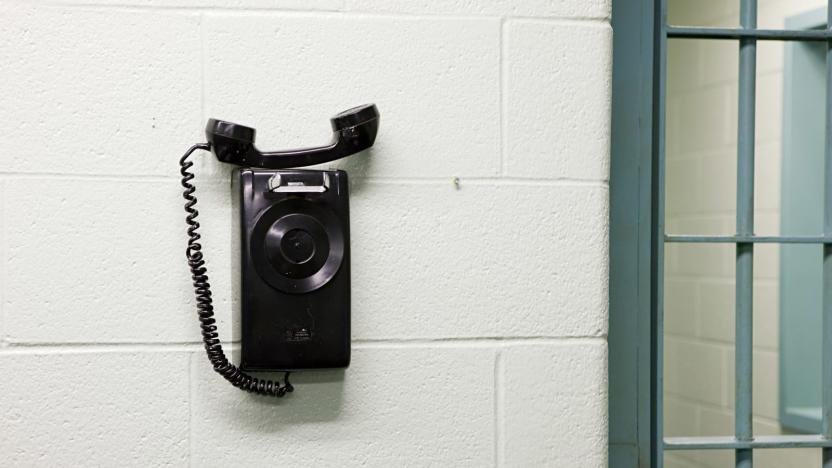
US prisons are reportedly creating 'voice print' databases
Prisons across the United States are reportedly building biometric databases that include voice recordings of incarcerated people, according to The Intercept. The report cites contracting documents for the state of New York's prison system, as well as statements from officials in Texas, Florida, Arkansas and Arizona confirming that prisons are actively using voice recognition technology that can extract and digitize voices to create unique and identifiable biometric signatures known as voice prints.

US judge rules that feds can't force fingerprint or face phone unlocks
Authorities can't force people to unlock devices with their faces, fingers or irises, a magistrate judge from California has ruled. Forbes has uncovered a nine-page order denying the search warrant for an investigation looking into a Facebook extortion crime. While the judge admits that investigators were able to establish probable cause for the warrant, she called their request to unlock any phone on the premises with biometrics "overbroad." The request wasn't limited to a particular person or device, and authorities would've been able to get everyone in the house to open their devices.
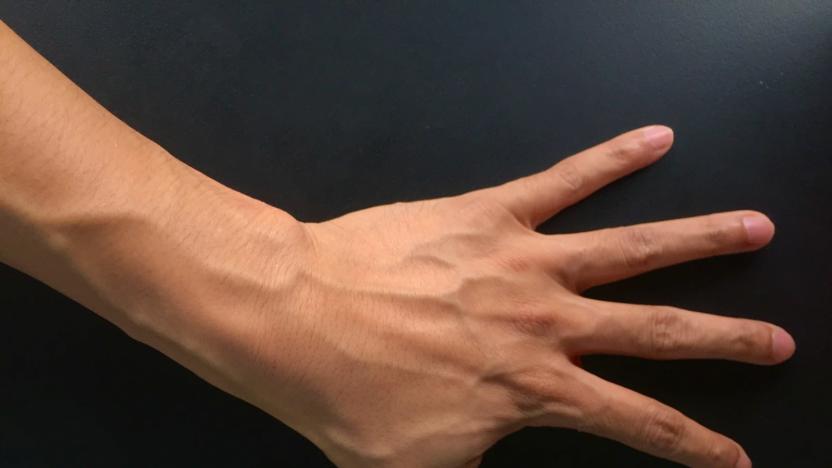
Hackers defeat vein authentication by making a fake hand
Biometric security has moved beyond just fingerprints and face recognition to vein-based authentication. Unfortunately, hackers have already figured out a way to crack that, too. According to Motherboard, security researchers at the Chaos Communication Congress hacking conference in Leipzig, Germany showed a model wax hand that they used to defeat a vein authentication system using a wax model hand.

Hertz is using biometrics to speed up car rentals
The next time you rent a car, you might need to show your face instead of your ID. Hertz announced today that it is teaming with security startup Clear to introduce Fast Lane, a biometric check for car rentals. The system -- which is the first of its kind for car rentals, according to the companies -- is currently operating at the Hartsfield-Jackson Atlanta International Airport and will be expanding to more than 40 Hertz locations over the course of 2019.
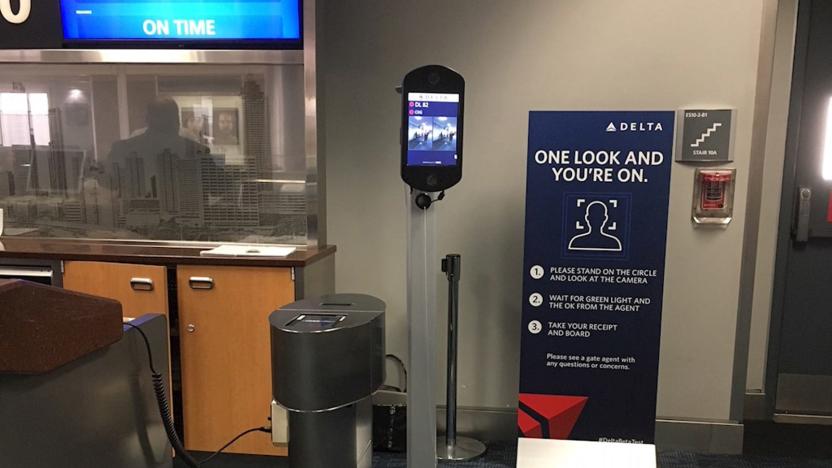
TSA outlines its plans for facial recognition on domestic flights
The Transportation Security Administration is determined to make facial recognition and other biometrics a regular part of the airport experience, and it now has a roadmap for that expansion. The effort will start by teaming with Customs and Border Protection on biometric security for international travel, followed by putting the technology into use for TSA Precheck travelers to speed up their boarding process. After that, it would both devise an "opt-in" biometric system for ordinary domestic passengers and flesh out a deeper infrastructure.

Delta’s fully biometric terminal is the first in the US
Delta Air Lines is launching what it calls the first "biometric terminal" in the US. The airline will use facial recognition at check-in, security and boarding inside the international terminal at Atlanta's Hartsfield-Jackson -- similar to systems already in place in Dubai and Australia, but more comprehensive than the biometric checks already in use at other airports around the US.
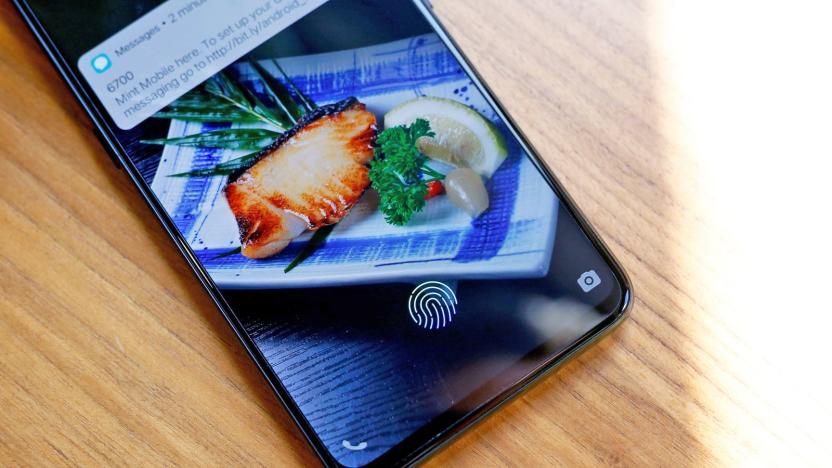
Biometric security now has an industry-wide testing standard
Biometric security is par for the course on smartphones and increasingly common on PCs, but there hasn't been a standard way to verify that the technology passes muster. That's where the FIDO Alliance might help. It's launching a first-of-its-kind Biometric Component Certification Program that will use independent labs to test the performance and security of fingerprint readers, face recognition and other sign-in devices across the industry. If a vendor wants to show that its face unlock feature can't be fooled by a photo, it won't have to jump through hoops to prove it.

Microsoft Edge now supports passwordless sign-ins
Edge users will soon be able to securely sign into websites without having to remember their passwords. Microsoft has today announced support for the Web Authentication specification in the browser, which will let you log on using Windows Hello hardware (so that's IR cameras and fingerprint readers), as well as PINs or external FIDO2 security keys, like the one launched by Google last week.
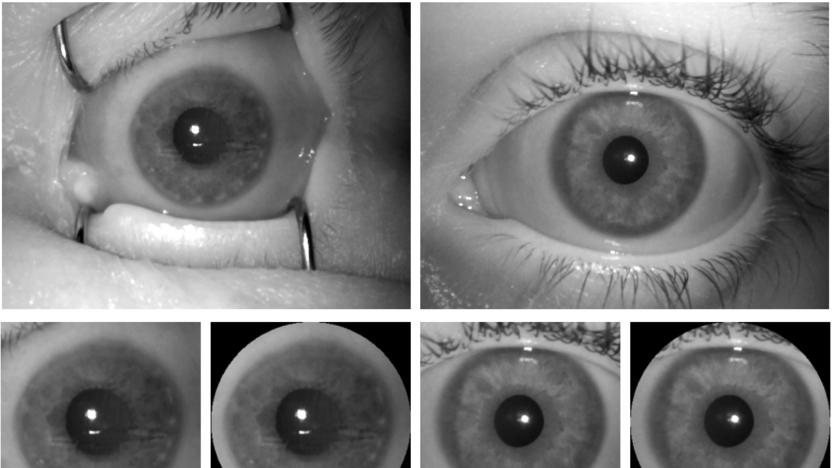
Iris scanner AI can tell the difference between the living and the dead
It's possible to use a dead person's fingerprints to unlock a device, but could you get away with exploiting the dead using an iris scanner? Not if a team of Polish researchers have their way. They've developed a machine learning algorithm that can distinguish between the irises of dead and living people with 99 percent accuracy. The scientists trained their AI on a database of iris scans from various times after death (yes, that data exists) as well as samples of hundreds of living irises, and then pitted the system against eyes that hadn't been included in the training process.

Australian airport begins passport-free biometric check-in trials
Qantas passengers who travel through Sydney Airport will be among the first groups of travelers to use facial recognition in automated check-ins, bag drop, lounge access and plane boarding. The system will ultimately allow officials to process travelers quicker. Early trials which provide a glimpse into a seamless, passport-free future are currently underway, but their implementation is provoking mixed responses.

How police are using corpses to unlock phones
If you've ever imagined a scenario where police demand you unlock your phone and thought, "Over my dead body!" — we have bad news for you. Here in our absurd dystopian future, having a phone means that upon your demise you could find yourself participating -- limp and lifeless -- in a legal search and seizure of your own digital property.

How security became more important than convenience
Since the dawn of infosec, the belief that we users are a group of dullard cattle who blindly trade our own security for convenience at every turn has been trumpeted by the stewards of IT and the infosec-arrogant, while bolstered by old research. Not anymore, says a new in-depth study from IBM on consumers' relationships with biometrics, authentication and the future of identity. If they have a choice, consumers now prefer taking extra security steps over using "123456" as a password.
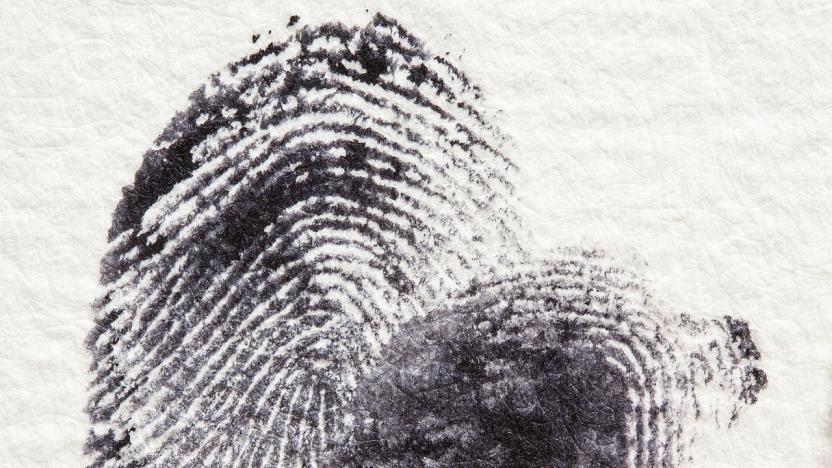
China accused of 'unjustifiable' DNA sample collection
China has been quietly collecting biometric data from millions of people in Xinjiang, according to a new report from Human Rights Watch (HRW). Since February, authorities have been gathering DNA samples, fingerprints and eye scans of those in the region, which apart from Tibet is the only region where ethnic Han Chinese are not in the majority. The government imposes tighter surveillance controls here than anywhere else in the country.






